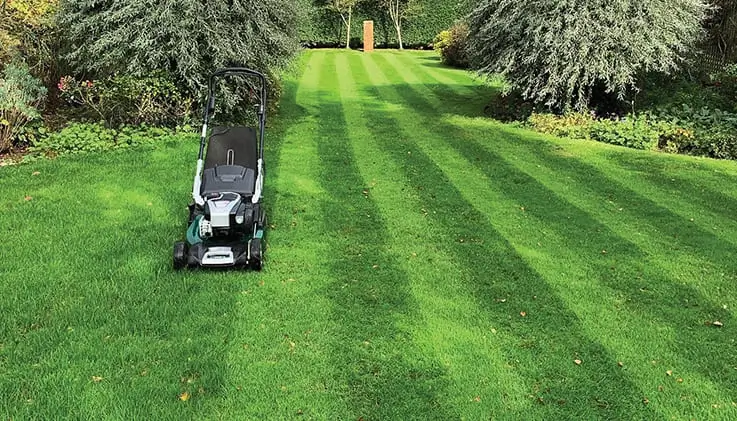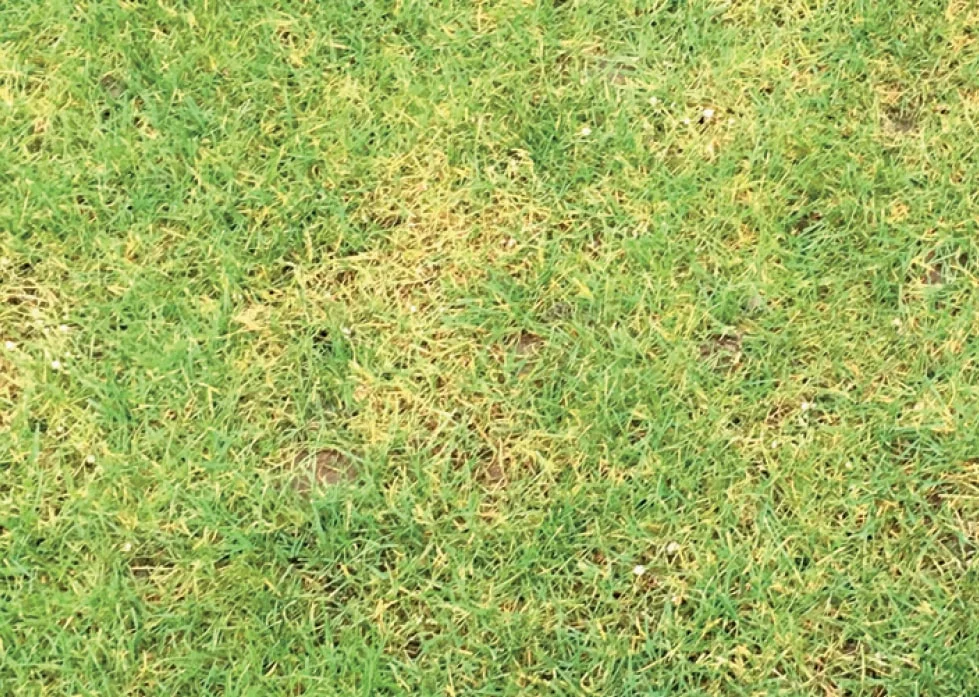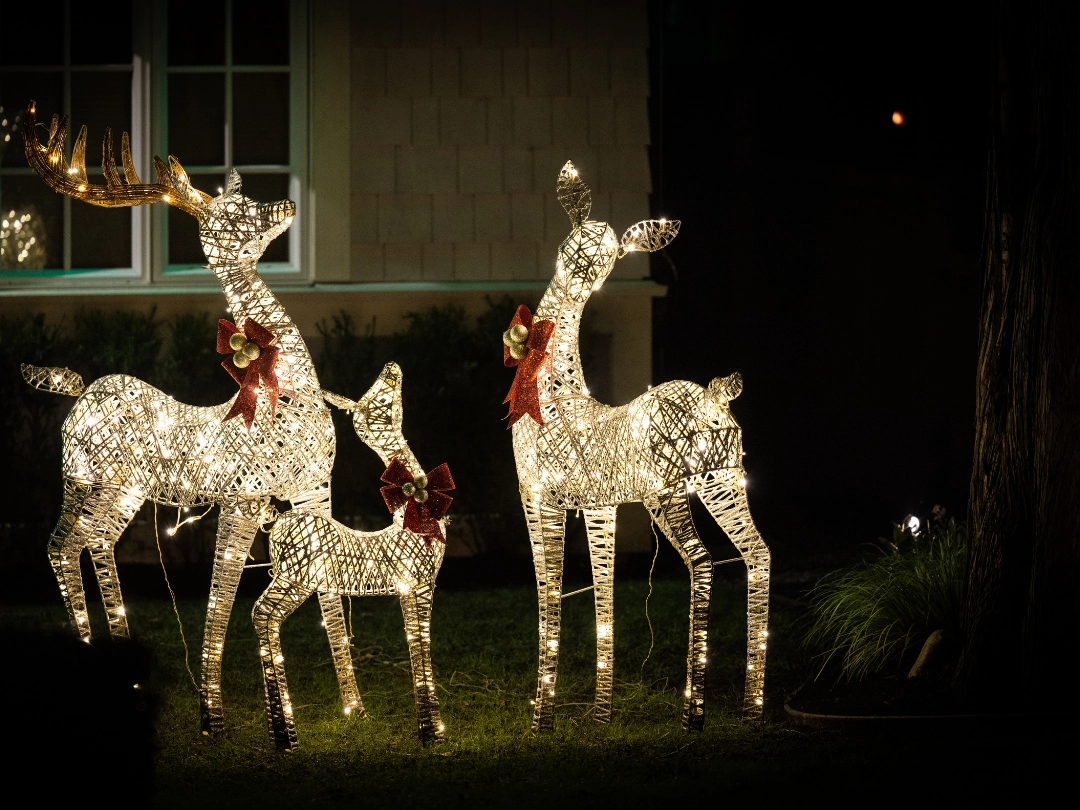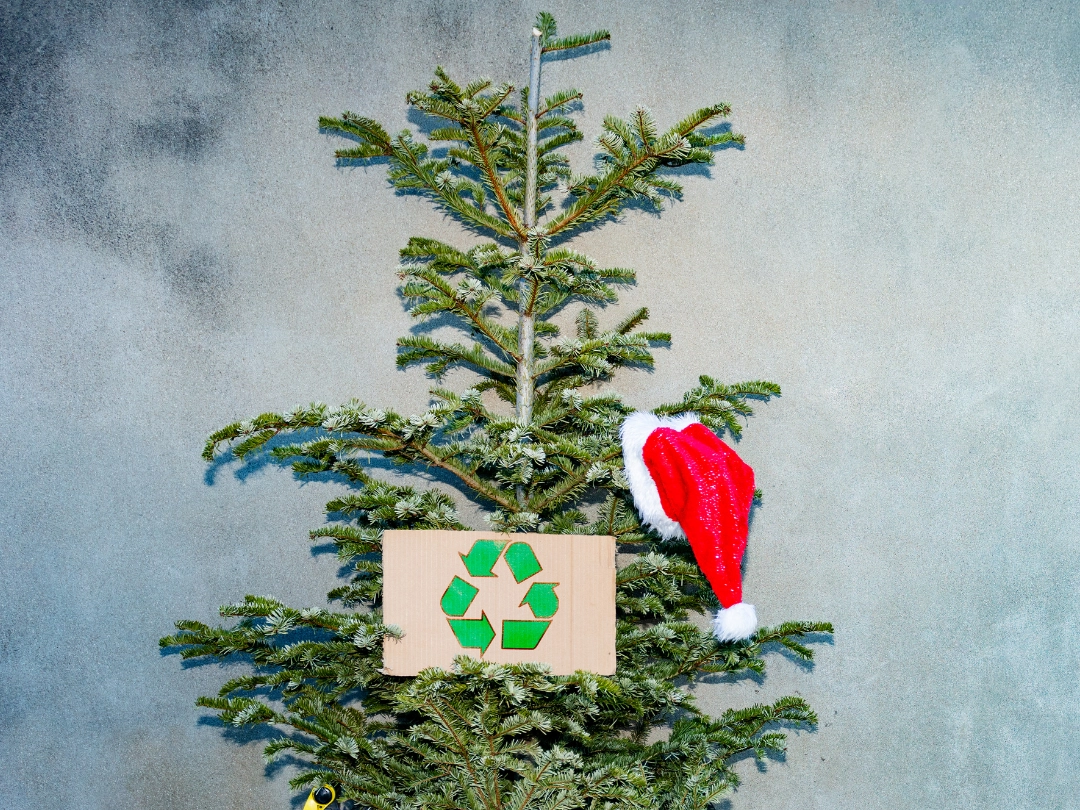A guide on how to keep your lawn green through the Christmas season
Last Updated: 16/05/2025
As winter settles in and the festive season approaches, for many homeowners their lawn's health may be a concern. Shorter days and colder temperatures can take its toll on the grass. There are however some steps that you can take to ensure that your lawn is still looking green and vibrant throughout the Christmas season and into spring.
1. Stop mowing, but keep an eye on grass length
One of the first things to consider when caring for your lawn during this period is your mowing schedule. With the weather cooling, the grass will seemingly stop growing, it's recommended that you should stop mowing once the grass reaches the height of around 2.5 to 3 inches. Longer grass will generally provide better protection against the cold and reduce the likelihood of fusarium patch and snow mould, as well as other turf diseases.

2. Winter lawn diseases
During winter, there are a few lawn diseases which will appear with temperature changes.
One fungal disease in particular is microdochium nivale, the pathogen which causes fusarium patch which is one of the most damaging diseases of turf grasses as it can be quite difficult to control. The disease is also particularly noticeable after thaws of snow, which is given the common name of snow mould.
It can appear very quickly over a short period of time when the weather conditions have occurred for the disease to spread.
How to get rid of fusarium patch:
Removing dew with the back of a rake
When dew stays on the grass all day long, it can often increase disease occurrence. Using the back of a flat rake to remove the dew can help dry your lawn quicker.
Fertiliser applications
Our standard treatment programme can help alleviate these diseases from occurring. Having regular feed and weeds applications will ensure your lawn is the healthiest after being provided with nutrients, so it can fight against diseases. Our autumn/winter treatments help harden the lawn against disease and typically include higher levels of potassium and lower levels of nitrogen which are key for stopping diseases establish.
Aeration
Another solution to help prevent lawn diseases is aerating your lawn, which is something that we offer in our standard treatment programme. This service is effective in improving drainage and allowing air and nutrients to the root system.
Find out more about aeration

Fusarium Patch thrives in wet, mild conditions and high nitrogen levels, appearing as a white-pink, cottony fungus on damp grass.
3. Christmas lawn decorations
Although Christmas lawn decorations can bring joy to your home and neighbourhood, it's important to consider which decorations you use to avoid damaging your lawn. When selecting decorations, consider the size and weight, as oversized inflatables like Santa, snowmen, and reindeer can cause compaction of the grass if left in the same spot for too long.
To prevent damage, we recommend opting for lighter decorations or those with a smaller footprint. If you prefer larger items, be sure to move them occasionally to prevent the grass from becoming flattened and starved of air.

4. Christmas treecycling
It may sound a little early at this point, as the tree may have only just have been put up! However, thinking about what to do with your real tree at the end of the festive period is something worth considering when it comes reducing waste at home:
1. Woodchip mulch
Firstly, remove the tree's needles and branches, then put the remaining through a shredder (if you don't own one, you can rent or ask a neighbour). With the shredded woodchip, add them at the back of a border for a few months so they can rot down before using it to mulch around shrubs and trees.
2. Compost
Christmas tree branches and needles are rich in carbon, a vital component for balanced composting. Cutting them into smaller pieces and adding them to your compost pile will help them break down, creating nutrient-rich compost for your plants and shrubs.
3. Natural wildlife habitat
Utilising the wood from your Christmas tree can enhance garden habitats. By chopping it into smaller pieces, you create shelter for insects and small wildlife, promoting biodiversity in your garden.

Conclusion
Following the above steps, along with the combination of pre-season preparation, you should be able to keep your lawn healthy and vibrant throughout the colder months and ready to bloom again when the weather warms up ready for spring.
Written by Lawn Master Head Office. 25 Years of Professional Lawn Care Services
About Lawn Master
For the past 25 years, Lawn Master has been providing professional lawn care services and expanding across the UK with a big difference. The difference being that we insist that all of our franchisees are pre-experienced turf industry professionals.






